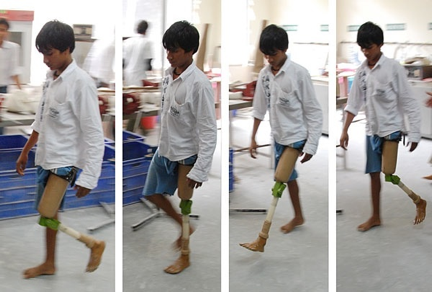 Stanford University engineering students Joel Sadler and Eric Thorsell were challenged to design a low-cost artificial knee for the developing world. High-tech prosthetics, with their titanium joints, can cost $50,000 or more, but Sadler and his team produced one that’s similar in design, but uses low-cost nylon polymer, for $20.
Stanford University engineering students Joel Sadler and Eric Thorsell were challenged to design a low-cost artificial knee for the developing world. High-tech prosthetics, with their titanium joints, can cost $50,000 or more, but Sadler and his team produced one that’s similar in design, but uses low-cost nylon polymer, for $20.
Stop for a moment and just think about that: $20 to put a kid back on his feet and get him on his way back to school, a child who might never have walked again if she had to rely on the current state of the art of Western technology. That’s one small step for a kid in India but it’s one giant step for humankind, when you consider, for instance, the millions of Americans who are uninsured and who would be unable to afford a $50,000 knee.